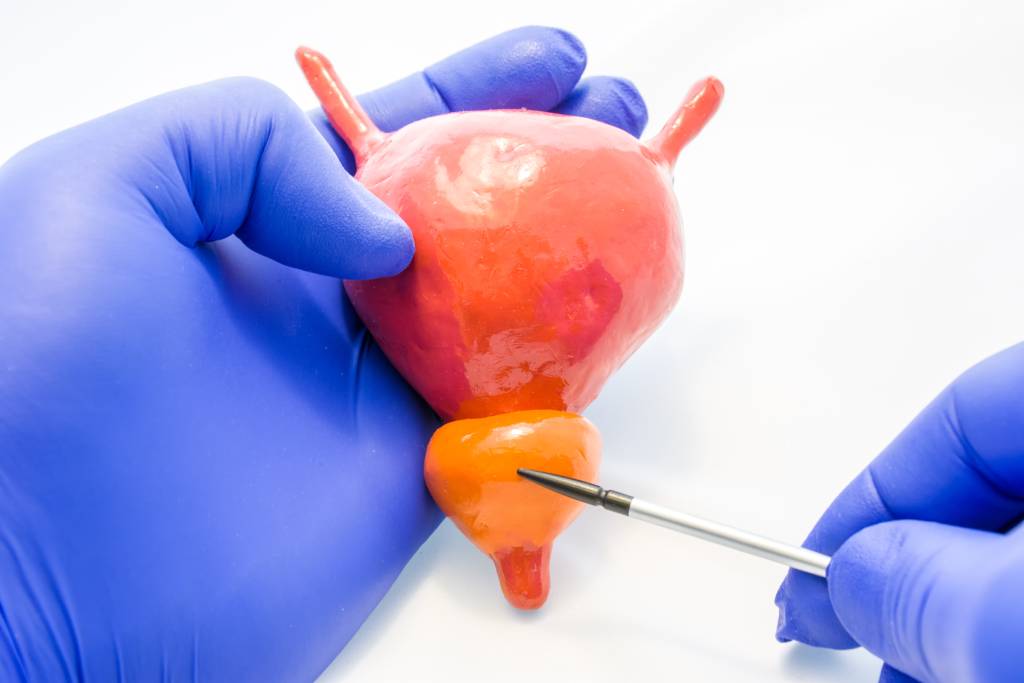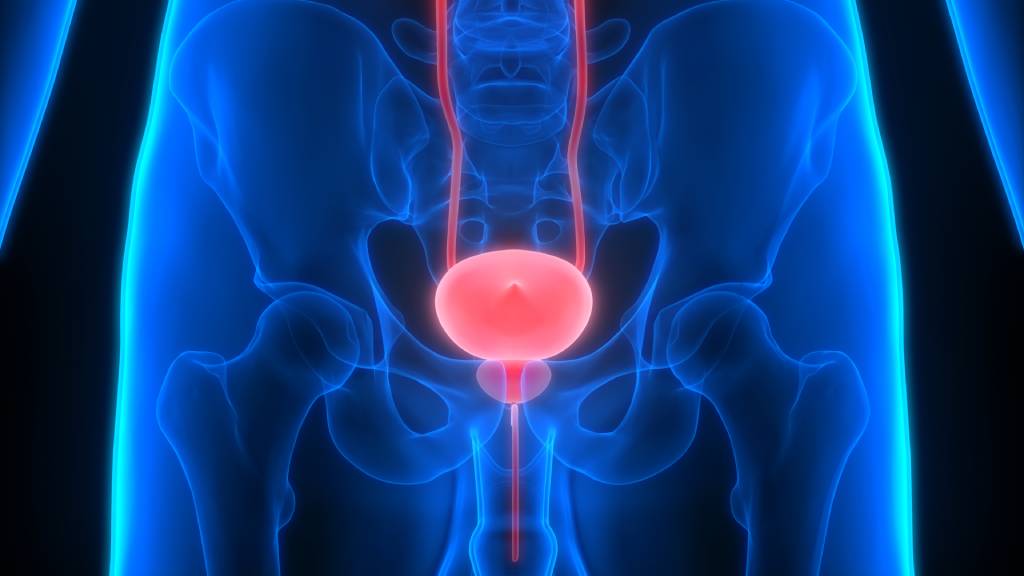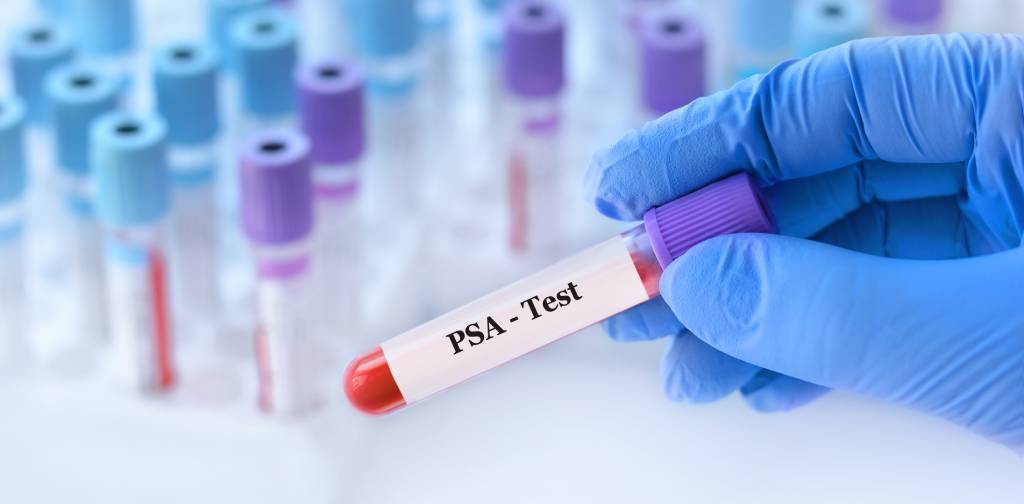Does BPH turn into prostate cancer? The simple answer is no. Benign prostatic hyperplasia (BPH) does not cause or progress to become prostate cancer.
Both of these diseases affect the prostate, can exist at the same time, and can lead to some crossover in symptoms, particularly urinary issues. However, they are distinct from each other.
Does BPH lead to prostate cancer? And, does prostate cancer turn into BPH? Let’s be clear, the answer is no. The presence of one of these diseases does not lead to an increased risk that an individual will develop the other.
Understanding the differences between BPH and prostate cancer can support more informed decisions about treatment. Keep reading to learn more about BPH and prostate cancer, including what makes each condition distinct and answers to frequently asked questions about them.
What Are BPH and Prostate Cancer?
What Is BPH (Benign Prostatic Hyperplasia)?
BPH, also called an enlarged prostate, refers to a condition marked by excessive and noncancerous growth of tissue in the transitional zone of the prostate. As WebMD explains, the word “benign” means the condition is not cancer, while the word “hyperplasia” means an increase in the number of noncancerous cells.
The prostate naturally grows as men age. However, excessive growth in the transitional zone can lead to quality-of-life issues, mostly related to urination, as well as more serious medical complications if the condition is left untreated.
The exact cause of BPH is unknown. However, research published in the peer-reviewed journal Urology highlights a connection between BPH and the hormone dihydrotestosterone (DHT). DHT can cause excessive prostate growth. 5-alpha reductase inhibitors, which block the conversion of testosterone to DHT, are a medically proven treatment option for BPH.
Along with medication, BPH can be treated with traditional (and generally invasive) surgery or minimally invasive procedures. Additionally, cases of BPH that do not cause issues with quality of life or present other risks can be observed (and treated if the conditions change) through a process called watchful waiting.
Certain risk factors related to this disease have been identified. These risk factors include:
- Age. As men age, the prevalence of BPH increases. Penn Medicine points out that more than 90% of men aged 80 and older have BPH. BPH is common in men over age 50.
- Family history. BPH may be more prevalent in men with a family history of this disease.
- Overall health. The presence of other health conditions, such as diabetes or obesity, may increase the risk of BPH. Conversely, exercise may help to reduce that risk.
BPH symptoms are primarily related to urinary function. These include increased frequency of urination, difficulty starting urination, incomplete emptying of the bladder, needing to wake during the night to urinate (nocturia), and other symptoms. Without treatment, more serious concerns like bladder stones and urinary tract infections can occur.
What Is Prostate Cancer?
Prostate cancer is a disease where malignant, or cancerous, cells grow in the prostate. Prostate cancer is the second most common form of cancer in men. Many instances of prostate cancer are slow to grow and do not require intensive treatment. However, other instances can grow aggressively and require a more proactive approach to treatment.
The exact cause of prostate cancer is not known, but certain prostate cancer risk factors have been identified, including:
- Age. Prostate cancer is more likely to develop in older men, even when they are generally healthy.
- Family history. Prostate cancer risk is elevated if a blood relative has or had this disease.
- Genetics. Certain gene mutations can increase the risk of prostate cancer.
- Diet and lifestyle. Red meat, alcohol, processed foods, and certain other foods can increase prostate cancer risk. So can a sedentary lifestyle and obesity.
Treatments for prostate cancer include traditional (and generally invasive) surgery, radiation therapy, chemotherapy, and minimally invasive procedures. When prostate cancer is slow to develop and presents a low risk, men with other health issues or a limited life expectancy may use watchful waiting instead of a more active treatment.
While BPH does not progress to prostate cancer, there can be some crossover in symptoms between the two conditions. These symptoms are mostly related to urination, including nocturia, difficulty starting urination, and incomplete emptying of the bladder.
Both prostate cancer and BPH can also cause elevated levels of prostate-specific antigen (PSA), which is a common test used in diagnosing prostate cancer. To differentiate between the two, physicians will use other tests to distinguish between them, such as an MRI-targeted biopsy.
Prostate cancer can spread to other areas of the body if it is not identified early on, which makes regular screening especially important. Many, although not all, cases of prostate cancer can be managed and treated if they are found before they spread beyond the prostate itself.
Can BPH Turn Into Prostate Cancer?
No, BPH does not turn into prostate cancer, and the presence of BPH does not increase the risk of prostate cancer. Similarly, prostate cancer does not turn into BPH nor raise the risk of BPH developing.
Understanding the Misconception of a BPH-Prostate Cancer Connection
These two diseases can occur at the same time, and some of the symptoms of prostate cancer can be similar to those of BPH. Both cause elevated PSA levels, which require additional diagnostic efforts to distinguish between the two.
So, it’s understandable that some people think there is a connection between these diseases or a potential for one to cause the other. That said, the conditions are separate from each other, and one does not cause the other.
Remember that BPH is an overgrowth of benign cells within the prostate and is contained within that gland. Prostate cancer is the uncontrolled growth of mutated cells, which starts in the prostate but can spread beyond it.
Treating Prostate Cancer and BPH
While these two conditions of the prostate gland are distinct, there are certain treatments that can be effective for both. Prostate Laser Center offers two minimally invasive procedures, focal laser ablation (FLA) and transurethral ultrasound ablation (TULSA-PRO), for the treatment of both prostate cancer and BPH for qualifying patients.
Frequently Asked Questions About BPH and Prostate Cancer
Does BPH Turn Into Prostate Cancer?
No, BPH does not progress or turn into prostate cancer. BPH and prostate cancer are distinct conditions, and the presence of one does not increase the risk of the other occurring. BPH and prostate cancer can occur independently or simultaneously, but they do not influence each other or connect to each other.
The two conditions share signs, such as elevated PSA levels, and symptoms, such as issues with urination. Despite those shared signs and symptoms, they are distinct conditions.
How to Tell BPH From Prostate Cancer?
Testing by a physician is needed to distinguish BPH from prostate cancer. Elevated PSA levels can be caused by both prostate cancer and BPH, so physicians use additional tests to determine which condition is present. Medical imaging, such as MRI, and targeted, MRI-guided biopsy can help medical professionals determine if prostate cancer, BPH, or both are present.
Prostate cancer may not display many or any symptoms until the disease has progressed. For that reason, regular screening for prostate cancer is especially important. Overall prostate cancer relative five-year survival rates sit at 97.9%, as the National Cancer Institute points out, but screening is crucial for early detection and the potential for more effective treatment. This is especially important for the more aggressive types of prostate cancer. Early and accurate diagnosis can help a man and his physician better risk stratify the disease in his particular case and allows for better decision making on treatment options tailored to the individual’s specific situation.
How Often Does an Enlarged Prostate Lead to Cancer?
Having an enlarged prostate does not lead to prostate cancer – BPH simply does not progress into or change to become prostate cancer. BPH does not increase the risk of prostate cancer. The same is true of prostate cancer, in that there is no connection between that disease and BPH. Many men have BPH and never develop prostate cancer.
What is the Biggest Indicator of Prostate Cancer?
A persistently high or rising PSA level, especially in combination with MRI findings, biopsy, and other diagnostic results, may indicate prostate cancer. Because a high PSA level can also be caused by BPH, PSA testing alone is not enough to distinguish between these two conditions.
Further testing by a physician is vital for distinguishing between prostate cancer and BPH, allowing for relevant and effective treatment that takes the specifics of each disease into account.
Can I Have an Enlarged Prostate and Not Have Cancer?
Yes, it’s entirely possible and quite common for men to have an enlarged prostate and not have prostate cancer. BPH is a common condition that has no connection to prostate cancer.
Minimally Invasive Treatment Options for BPH and Prostate Cancer
Prostate Laser Center offers MRI-guided, minimally invasive treatment options for both prostate cancer and BPH to qualifying patients. Both FLA and TULSA-PRO can offer a reduced incidence of certain side effects as compared to certain other treatment options. See how treatment options compare for both BPH and prostate cancer.
NOTE: The information provided on this website is general medical information and does not establish a physician-patient relationship. Please discuss your particular situation with a qualified medical professional.



